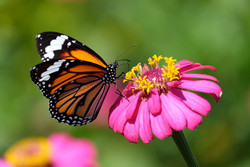A better understanding of nectar yeasts
Researchers have begun to realise that certain yeast species are changing the nectar they grow in and are thus influencing pollination more than previously imagined. However, it is not yet clear exactly how this is occurring, and what the outcomes are for plants and pollinators. The EU-funded PHENOGENYEAST (Exploring the phenotypic landscape of nectar yeasts in relation to their genetic background) initiative addressed this by studying nectar yeast genetics and diversity, and connecting these to environmental conditions. To achieve this, project researchers first collected more than 1 000 nectar samples in Spain. These contained the two most common nectar yeasts: Metschnikowia gruessii and M. reukaufii. At the same time, they gathered environmental data for each sample, and then grew the various yeasts in the laboratory for further study. PHENOGENYEAST found that these two species do not compete for resources, in that they preferentially use different sugars as energy sources. This means that they can share resources within a single environment, explaining why they commonly grow together. Both yeasts also showed a large amount of genetic and physical variation within the species. Researchers expected this, as it explains why the same species can grow in the nectar of such a wide number of plant species. Lastly, this study showed that variation within a species is influenced more by environmental differences than by geographical distance. PHENOGENYEAST has shed light on the genetics of nectar yeasts, an area that has not been studied well. This new knowledge will help pollination biologists and evolutionary ecologists better understand plant-pollinator interactions.







